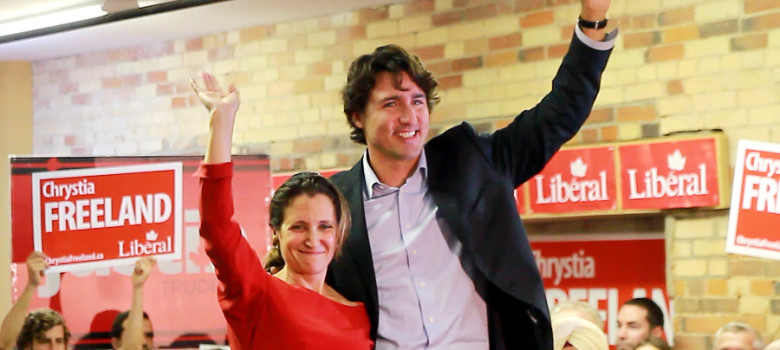International Trade Minister Chrystia Freeland has faced a challenging week given the possible collapse of the trade agreement between Canada and the European Union. Freeland and the Liberal government have worked hard to get CETA to the finish line with some changes to the investor – state dispute settlement rules (the rules should be dropped altogether) and frequent travel across Europe to garner support for the deal.
Back at home, the reaction to the CETA problems from the Conservative opposition has been embarrassing. Trade critic Gerry Ritz criticized Freeland, speaking of the need for adult supervision and calling on the government to get the job done. Freeland rightly called him out on the comments, but she could have also noted that the record suggests that it is the Conservatives that failed to get the job done on CETA. In April 2010, the Conservative government said it would be finished in 2011. In 2011, reports said it would be done in 2012. In October 2012, the projection was a deal by year-end. It took until the fall of 2013 for a ceremony marking an “agreement-in-principle”. That too proved to be premature as there was another event celebrating an official draft in 2014 followed by more legal drafting and the renegotiation of controversial ISDS provisions that led to the release of another text earlier this year. In other words, Freeland inherited far less than advertised on CETA and the Conservatives might not want to remind the public that their biggest trade accomplishment never actually involved a signed, final text.
The Ritz remarks have attracted attention, but comments yesterday from Prime Minister Justin Trudeau may have a longer and more damaging impact on Freeland. Speaking at a youth labour summit, Trudeau gave the clearest indication yet that the Liberals plan to move ahead with the TPP assuming the agreement goes ahead (the TPP is facing enormous opposition in the U.S. and cannot take effect without its approval). Asked about the TPP, he stated that “It’s difficult to imagine a world where Canada would turn its back on three of its top five trading partners. We established very clearly during the campaign that we’re a pro-trade party.”
That is a far cry from the Liberal position on the TPP both during the election and since forming government. Freeland has consistently stated the final decision on the TPP would not come before the completion of extensive public consultations. Those consultations are still ongoing with the deadline for submitting comments to the Standing Committee on International Trade open until October 31st. The committee report is therefore still weeks away and the necessary debate in the House of Commons has yet to occur. While Trudeau did not definitively state that Canada will ratify, the comments call into question the seriousness of the consultation and lend credence to concerns that the process is little more than theatre.
Further, not only do the comments hurt Freeland’s credibility on an open consultation, but they also undermine Canada’s bargaining position with respect to potential changes to the TPP. While officials have stated that the deal cannot be amended, the same was said about CETA and changes were ultimately incorporated into the final text. With opposition running high in the U.S., the prospect of re-opening some TPP issues or crafting side letters that involve some change is a real possibility. The Canadian position is weakened by Trudeau’s comments, however, since TPP partners will now assume that any threat to walk away is mere posturing and that no further concessions are needed.








An ambivalent public is all a government needs to give it bargaining leverage.
Pingback: Freeland insists government still undecided on TPP
Because the public wants to know what is the issue is all about.
Pingback: Back to the Drawing Board as Trump Kills the TPP – WP RSS Aggregator Advanced Demo